2024 voter guide
It's election season at the American Society for Biochemistry and Molecular Biology. We invite you to read statements from each of our candidates below. Find out more about them and vote here.
Voting ends May 30.
Candidates for Council
The ASBMB Council advises the president and executive director on setting priorities and strategic directions, overseeing resource allocations, and ensuring all activities align with the society’s mission. Councilors are elected for three-year terms. They can be re-elected or reappointed to serve one additional term.
Select two candidates in this race.
Philip Cole
Professor, Harvard Medical School, Departments of Medicine and Biological Chemistry and Molecular Pharmacology
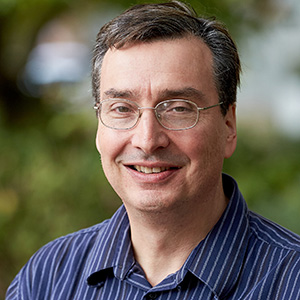
Statement of interest: I believe that the ASBMB has an important mission in promoting research in mechanistic biology and investigation at the chemistry–biology interface. Through its journals, conferences and policy advocacy, the ASBMB has historically been at the forefront in fostering rigorous and impactful science, education and training, and professional development. The ASBMB is known for standing for the values of scientific excellence as well as diversity, equity and inclusion.
I embrace the ASBMB mission and values and would be proud to be part of the ASBMB Council in service of these goals. I am concerned about the threats faced by science and scientists including the loss of public confidence in biomedical science, reduction in financial support for research and the spread of false information.
As a member of the ASBMB Council, I would view my role and responsibility as helping to promote enlightened, empathetic and inclusive approaches for disseminating evidence-based scientific policy and practices for the betterment of our society, locally and globally.
Read the full candidate profile.
Martha Cyert
Professor and chair, Stanford University, Department of Biology
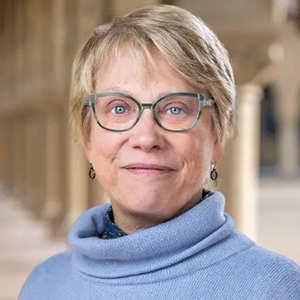
Statement of interest: I am a biochemist carrying out fundamental studies of the Ca2+/calmodulin–activated protein phosphatase calcineurin, during which I have defined conserved mechanisms of substrate recognition and used these principles to systematically discover calcineurin signaling networks in yeast and humans. As an active educator and mentor, I am passionate about providing innovative research experiences for undergraduates, especially first-generation and low-income students.
I have been an ASBMB member since 2004 and am proud to have been chosen as an ASBMB fellow in 2024 in recognition of my service to the society, where I have served on the Public Affairs Advisory Committee (2015–2021), co-organized the annual meeting (2022) and currently serve on the Meetings Committee. I support the research training and community building goals of ASBMB and am passionate about building inclusive communities in STEM and advocating for continued support of investigator-initiated studies that examine fundamental processes in the biomedical sciences.
This is a critical time for science and scientists, and I am dedicated to maintaining and strengthening the vibrant ASBMB community by engaging the next generation of scientists. Priorities for the society include growing and expanding our membership, increasing attendance at the annual meeting and supporting open science through policies that promote open-access publishing and global cooperation and collaboration.
Read the full candidate profile.
Rick Page
Professor and associate vice president of research and innovation, Miami University, Department of Chemistry and Biochemistry

Statement of interest: My first experience with the ASBMB was the 2014 Interactive Mentoring Activities for Grantsmanship Enhancement, or IMAGE, grant-writing workshop, a transformational experience that set the stage for my independent career. Since that time, I have continually sought opportunities to give back to the ASBMB community.
My largest contribution has been through service on the ASBMB Public Affairs Advisory Committee, or PAAC. During my tenure on the PAAC, we have renewed focus on advocacy for the next generation of scientists, the diverse range of institution types that employ ASBMB members and advocacy to a broader coalition of funders, including the National Science Foundation, National Institutes of Health, Department of Energy and Food and Drug Administration. PAAC efforts in this time have increased our advocacy to funders and legislators and developed the Advocacy Training Program.
I have also served our fellow ASBMB members at the annual meeting during mentoring sessions, as an Undergraduate Poster Competition judge and throughout the year as a mentor within the ASBMB IMAGE grant-writing workshop and mentorship program.
As my time on the PAAC comes to a close, I am eager for additional opportunities to serve the ASBMB community and advocate for the needs of ASBMB members. I view serving on the ASBMB Council as an outstanding opportunity to further serve the ASBMB community and to advocate for the needs of ASBMB members.
The ASBMB has been a tremendous positive force and influence in my career. I look forward to continuing my service to the ASBMB community through efforts that advance the interests of all ASBMB members.
Read the full candidate profile.
Rob Stahelin
Professor, Purdue University, Department of Medicinal Chemistry and Molecular Pharmacology
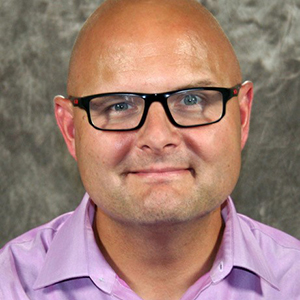
Statement of interest: The ASBMB has been a supportive community for my research and education since starting my lab as an assistant professor. I’ve made new collaborators and friends while gaining mentors that I’ve met through society activities and the annual meeting. The society has also been a great place to meet potential trainees and to bring my own lab members (undergraduates, graduate students and postdocs) to take part in the poster sessions, workshops and scientific sessions.
I’ve gained knowledge in outreach, communication, diversity and some of the inner workings of the society through service to ASBMB and the Journal of Biological Chemistry. I’ve been delighted by the undergraduate poster sessions, scientific sessions and workshops. Further, the ASBMB has an impressive community of scientists committed to biochemistry and molecular biology science education of which I’m proud to be a part.
I am committed to promoting undergraduate research and training, educational activities and workshops, and diversity, equity and inclusion. I am also excited by opportunities for new society members, trainees and junior faculty to take part in different ASBMB committees and activities at the annual meeting. I very much look forward to what the society and annual meeting have in store for the next generation of scientists.
Candidates for Nominating Committee
The ASBMB Nominating Committee nominates regular members of the society to stand for election for President, Council, Publications Committee and the Nominating Committee. Committee members are elected for three-year terms and can be re-elected or reappointed to serve one additional term.
Select one candidate in this race.
James Berger
Professor and director of the Institute for Basic Biomedical Sciences, Johns Hopkins University School of Medicine, Department of Biophysics and Biophysical Chemistry
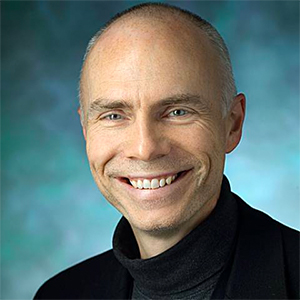
Statement of interest: As director of the Institute for Basic Biomedical Sciences at Johns Hopkins University School of Medicine, I oversee nine departments and 178 faculty members, who have led advancements in diverse areas such as the structure of DNA and RNA, the control of the organization and trafficking of cells, and the structure and function of neurons that enable sensation and memory formation. I lead Johns Hopkins Medicine’s initiative to commit $100 million to the basic sciences departments and support people and programs focused on unraveling basic mechanisms of biology that underpin virtually every major medical breakthrough.
I study the molecular machines that control DNA replication and chromosome organization. I elucidated the structure of essential enzymes, such as DNA topoisomerases and helicases, which revealed how chemical energy is transduced into force to control DNA topology and how these machines are targeted by chemotherapeutic agents. I have trained more than 40 doctoral students and postdoctoral fellows, who have gone on to careers in academia, biotechnology and other industries. In addition, I have authored more than 160 peer-reviewed publications.
Read the full candidate profile.
Mark Lemmon
Professor, chair and co-director of the Cancer Biology Institute, Yale University School of Medicine, Department of Pharmacology

Statement of interest: I have been a member of the ASBMB for at least 15 years and was the society's secretary from 2007 to 2013. I am also active in the Biochemical Society, as a member of the Publications Committee and as chair of the Biochemical Journal editorial board.
I have been a department chair at both University of Pennsylvania (2008–2015) and Yale University (where I now chair the Department of Pharmacology) and have served as program leader, associate director and deputy director at Yale Cancer Center.
I am committed to excellence in mentoring of basic and physician–scientists with a diversity of interests and backgrounds and to promulgating excellent basic science across the missions of the institutions in which I am involved. As a department chair and institute director, mentoring and supporting faculty as they develop their own excellent careers is one of my highest priorities.
Read the full candidate profile.
Judith Simcox
Assistant professor, University of Wisconsin–Madison, Department of Biochemistry
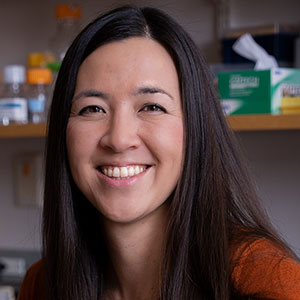
Statement of interest: I attended my first ASBMB national conference when I was an undergraduate in 2004, and the experience was transformative and a major steppingstone for me to become a professor.
My laboratory uses mass spectrometry–based lipidomics to identify lipids that regulate metabolic disease, functionally characterize these lipids using molecular biology and determine how transport of these lipids is mediated. This work has led me to serve as a junior associate editor for JLR and serve in the ASBMB Lipid Research Division.
Beyond research, I am passionate about mentorship and increasing diversity in science. As a graduate student and postdoctoral fellow, I helped found and build the Native American Research Internship and the University of Utah Society for the Advancement of Chicanos and Native Americans in Science, or SACNAS, chapter. Now at the University of Wisconsin–Madison, I serve as the co-mentor for the American Indian Science and Engineering Society, or AISES, chapter. My work in these areas has garnered much recognition.
By serving on the ASBMB Nominating Committee, I hope to utilize this past research experience and organizational service to usher in a new era of leadership for ASBMB. The goals of my service will be to: 1) ensure increased accessibility to science, 2) select leadership that is prepared for the multidimensional challenges molecular biologists and biochemists face in the future, and 3) strengthen the ASBMB position as a national advocate for scientific research.
Candidates for Publications Committee
The ASBMB Publications Committee oversees the society’s scholarly publishing activities, advises the Council on policy and ethical issues that may arise and advises journal editors about editorial matters, including the approval of associate editor appointments. Committee members are elected for five-year terms and can be re-elected or reappointed to serve one additional term.
Select one candidate in this race.
Ganesh Anand
Associate professor, The Pennsylvania State University, Department of Chemistry
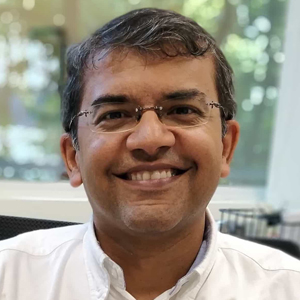
Statement of interest: I welcome the opportunity to join the ASBMB Publications Committee. It would be a great honor for me to maintain the leading excellence of ASBMB journals. Amidst the plethora of societies and journal publishing options and advances in artificial intelligence, such as ChatGPT, the ASBMB and its journals are more important than ever in guiding opinion and education of scientists and nonscientists alike.
My international career — beginning with undergraduate education in India, followed by postgraduate education and postdoctoral training in the U.S., and then an independent research career in Singapore and now in the U.S. — gives me a unique and valuable global perspective for the Publications Committee.
The ASBMB has been my educational home base throughout my academic career. The ASBMB annual meeting was my first conference as a graduate student in 1997, and I came away most impressed by the enormous scale, breadth and depth of research, education and mentoring. The society has been pivotal for my career; it has been an invaluable resource at all stages.
I am most passionate about the ASBMB’s commitment to supporting lifelong learning and continuous mentorship for all ages. If elected, I will be a champion for younger scientists’ voices in ASBMB journals. This will ease career transitions and train scientists to explore new areas of research. The ASBMB's journals are pivotal in assisting scientists to move beyond a comfort zone guided by a narrow scientific focus, defined by past training and expertise. I will use my position to strive to cement ASBMB’s leadership in advancing inclusivity and diversity in interdisciplinary research.
Read the full candidate profile.
Jason Gestwicki
Professor, University of California, San Francisco, Department of Pharmaceutical Chemistry
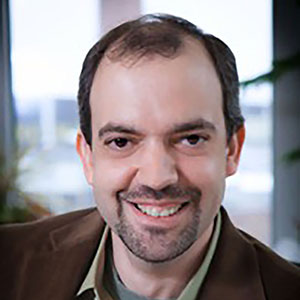
Statement of interest: The landscape of scientific publishing is undergoing exciting changes, with a push toward increased rigor, transparency and access. At the same time, changing financial incentives and increased competition have placed pressure on the system. I firmly believe that, in this new ecosystem, society journals, such as those supported by the ASBMB, continue to play a critical role.
In our journals, high-quality work, even that performed at the fringes of what is considered trendy, can be communicated in a clear and direct way to the audience(s) that will be most impacted and inspired. However, to maintain this mission, society journals will need to adapt to the changing publishing landscape, while also staying true to their core principles. What are the goals of publishing? To communicate scientific findings? To create learning opportunities for trainees? To inspire others to ask the next questions? All of these answers (and more) can be true.
My own experiences publishing in the Journal of Biological Chemistry have been rewarding because the editors, reviewers and authors have a seemingly common objective. I am pleased to be considered for the ASBMB’s Publications Committee, so that I have a chance to continue the work of my predecessors in guiding our society journals.
Candidate for treasurer
The ASBMB Finance Committee assists the Council in fulfilling its financial oversight responsibilities by monitoring the society's financial resources, including budgeting and financial planning, financial reporting, internal controls and accounting policies, and investment fund strategies. The treasurer leads the committee over a three-year term and can be re-elected or reappointed to serve an additional term.
Select one candidate in this race.
Russell DeBose–Boyd
Chair in Biomedical Science and professor, University of Texas Southwestern Medical Center, Department of Molecular Genetics
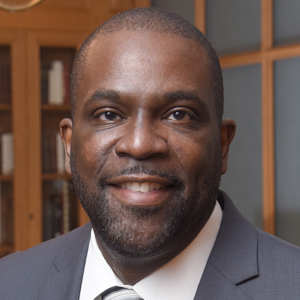
Statement of interest: I have been a member of the ASBMB for the past 20 years, and my career has greatly benefited from the society through participation in the ASBMB annual meeting and the Deuel Conference on Lipids and as an author and member of the editorial team of ASBMB journals. I currently serve as an associate editor for the Journal of Lipid Research and editorial board member for the Journal of Biological Chemistry. I am particularly excited about my most recent role as a mentor for the ASBMB MOSAIC K99/00 program.
It has been an honor to contribute to the ASBMB as interim treasurer since late fall of 2023; I am interested in continuing to serve the society in this capacity. I look forward to working with the Council, staff leadership and the Finance Committee to ensure the ASBMB remains on a solid financial foundation, allowing sustained growth of its journals and meetings as well as educational and professional development programs for years to come.
Enjoy reading ASBMB Today?
Become a member to receive the print edition four times a year and the digital edition monthly.
Learn moreGet the latest from ASBMB Today
Enter your email address, and we’ll send you a weekly email with recent articles, interviews and more.
Latest in People
People highlights or most popular articles

Embrace your neurodivergence and flourish in college
This guide offers practical advice on setting yourself up for success — learn how to leverage campus resources, work with professors and embrace your strengths.

Survival tools for a neurodivergent brain in academia
Working in academia is hard, and being neurodivergent makes it harder. Here are a few tools that may help, from a Ph.D. student with ADHD.

Quieting the static: Building inclusive STEM classrooms
Christin Monroe, an assistant professor of chemistry at Landmark College, offers practical tips to help educators make their classrooms more accessible to neurodivergent scientists.

Hidden strengths of an autistic scientist
Navigating the world of scientific research as an autistic scientist comes with unique challenges —microaggressions, communication hurdles and the constant pressure to conform to social norms, postbaccalaureate student Taylor Stolberg writes.

Richard Silverman to speak at ASBMB 2025
Richard Silverman and Melissa Moore are the featured speakers at the ASBMB annual meeting to be held April 12-15 in Chicago.

Women’s History Month: Educating and inspiring generations
Through early classroom experiences, undergraduate education and advanced research training, women leaders are shaping a more inclusive and supportive scientific community.
